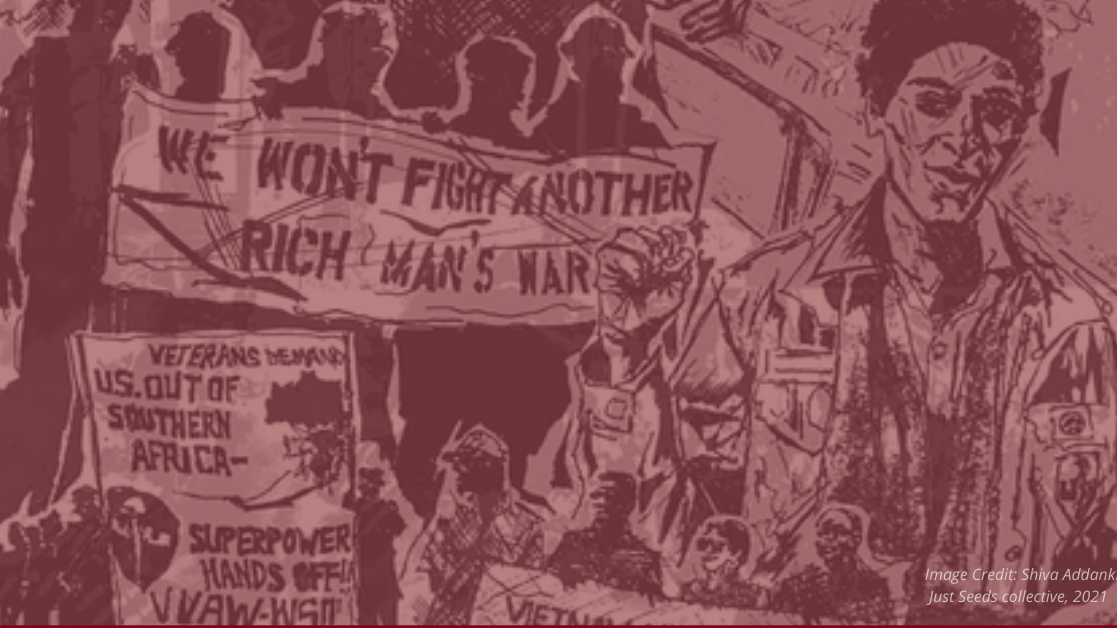Militarism + War

Definition
Militarism is the belief or the desire of a government or a people that a state should maintain a strong military capability and to use it aggressively to expand national interests and/or values.
Why This Matters
Military spending is higher than ever, while there are 140 million poor and low-income people in the richest country in the world. As the COVID-19 pandemic is revealing, these distorted national priorities and the disinvestments in programs of social uplift will have brutal effects on the poor, who lack health care, housing, access to water and sanitation, living wages, worker protections or any adequate system of social welfare
Our Response
We know that the narratives upholding war and militarism rely on fear and economic insecurity to grow the military-industrial complex. These narratives are used to criminalize and militarize our communities and pit the poor of this country against each other and the poor of the rest of the world. The first step towards deconstructing these narratives is engaging a conversation with people who are directly impacted by war and militarism. Their stories have the power to break through the myths and propaganda and build connections across issues and communities. They have the power to shift the social consciousness of the conditions we face and prepare the way for a new society to be born.
From that foundation, we can develop and disseminate a narrative that confronts the unnecessary violence of militarism and offers instead an ethic of accountability, equity, care and repair, both at home and abroad.
Tips for How to Use These Resources in Your Community
1. Each One, Teach One: Share the information from these resources on social media, in your community or congregations. Organize a study session in your community or congregation using articles, videos and other resources from this resource hub.
2. Teach as we Lead: Rev. Dr. Martin Luther King, Jr. rallied against the injustice of militarism and its relationship to poverty and racism. Coordinate a discussion on his sermon, Beyond Vietnam, which he delivered one year before his death on April 4, 1967. Coordinate a discussion series on the impacts of war on our communities, using the 4-part video series included in this resource hub and fact sheets.
3. The Struggle is Our School – Invite a leader from the Kairos Center Network to speak at your church or community organization and learn from the first hand experience of leaders working to build a movement to end poverty and the interlocking injustices.
4. Learn as You Lead: Join the state-based work of the Poor People’s Campaign wherever you live.
5. Follow the Kairos Center on social media to access our latest content.